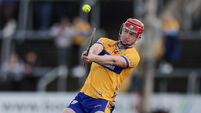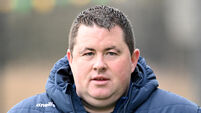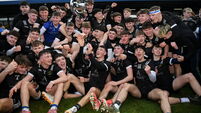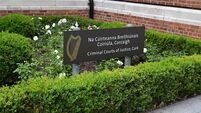Gary Brennan: Clare are cutting down on mistakes but the air is thin from here on

Roscommon's Ultan Harney is tackled by Cillian Rouine and Manus Doherty of Clare. Both defenders were also comfortable carrying the ball out.
A CÉADTA sa chath agus na deireannacha as, is the motto attached to the Clare crest — first into battle and last out.
Our boys certainly lived up to that on Saturday. By pure coincidence, I happened to be just a few seats away from my former team-mate, Gordon Kelly. With the second half seeming to peter out, we were both fairly muted but by the time the final whistle went, it was demanding all of our self-restraint not to jump down from the middle tier of the Hogan Stand to join the celebrations.











